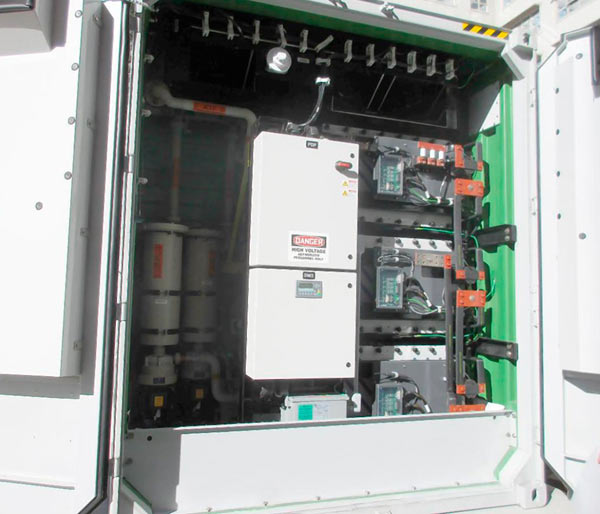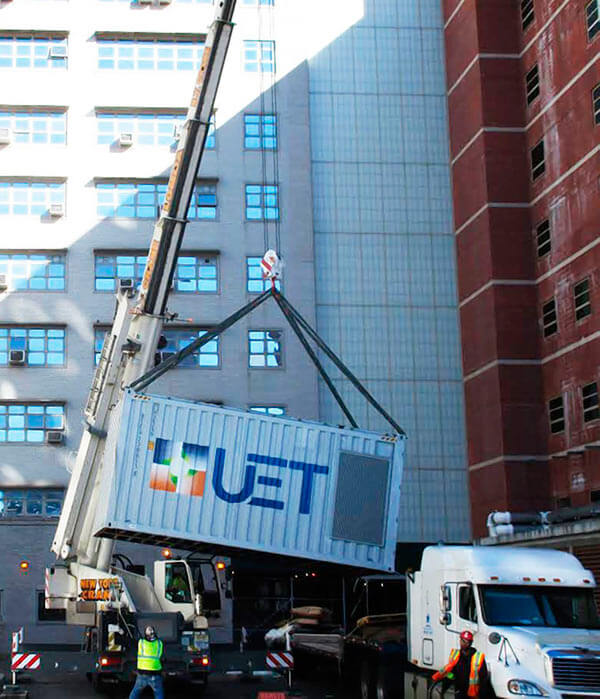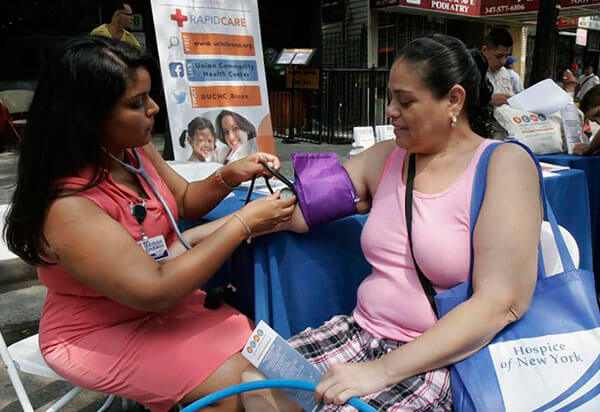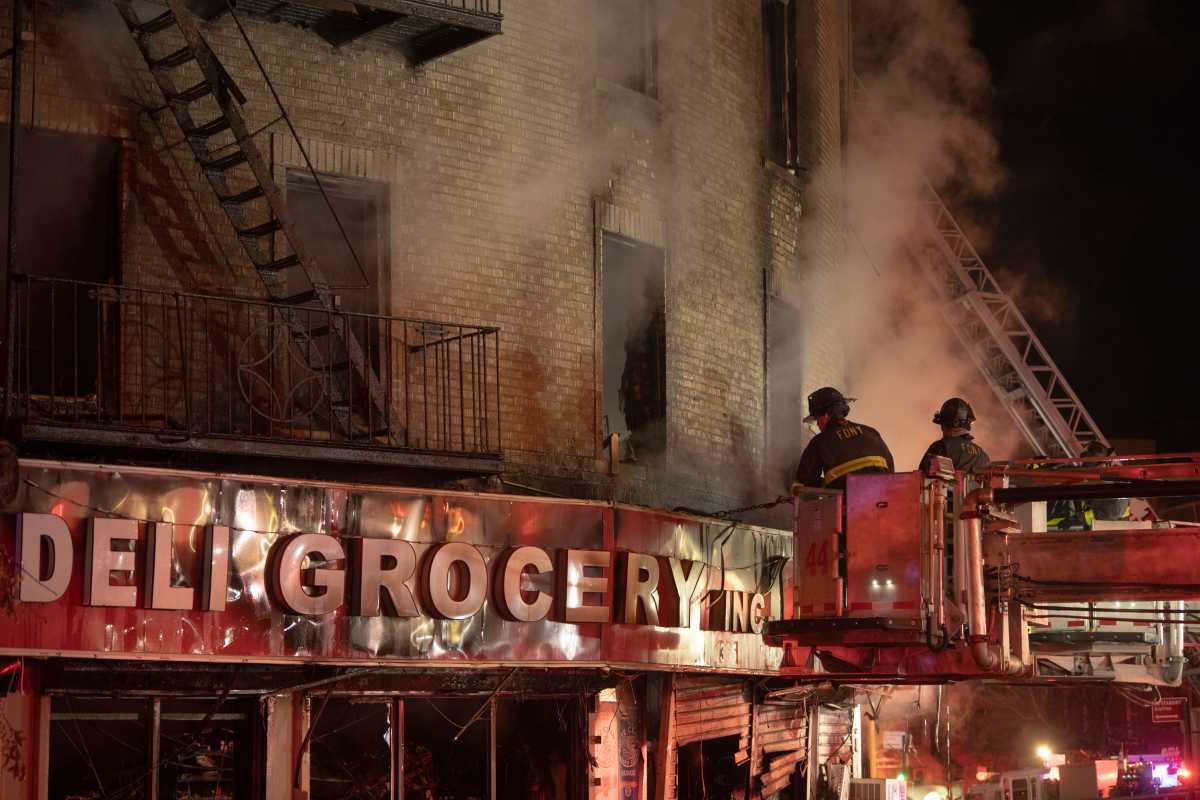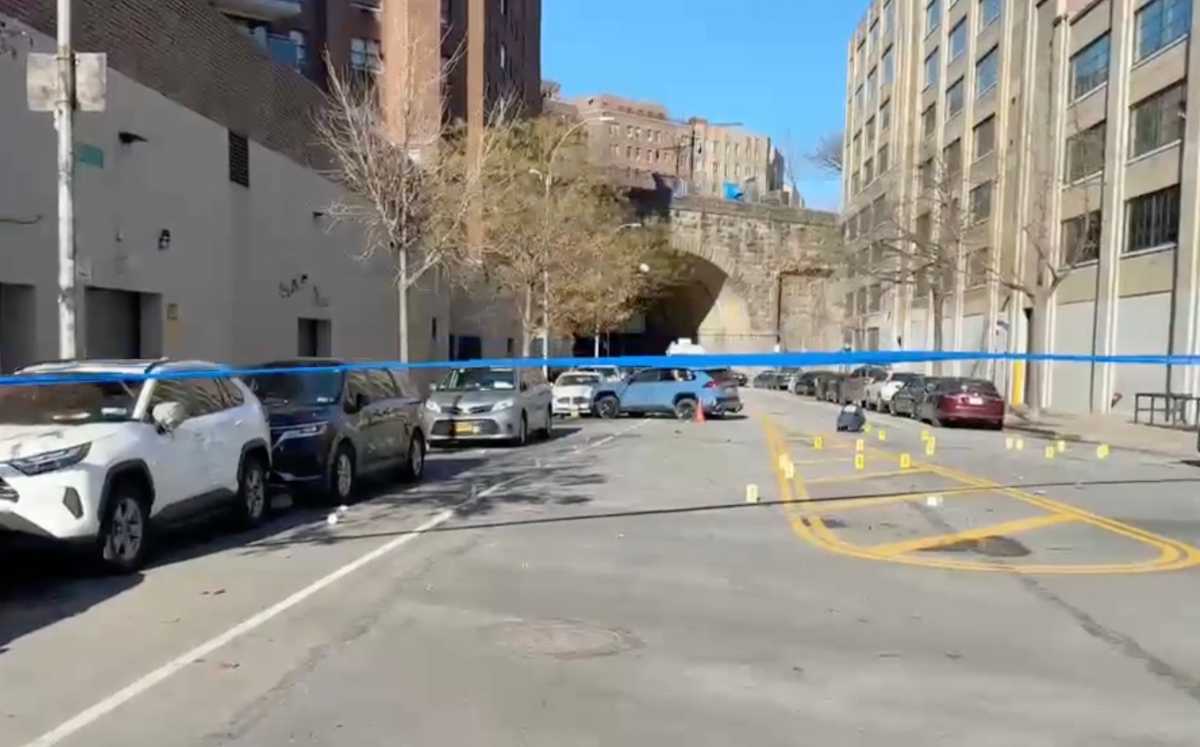A local hospital is working with renewable energy.
The NYC Department of Citywide Administrative Services, along with hospital officials and the private sector, is testing a new battery that is the size of a shipping container as a source of renewable and backup power for Jacobi Medical Center, one of the city’s Health and Hospital Corporation’s facilities. According to a hospital spokesman, the battery that is 20-feet long is already in place behind buildings one and six and should be fully operational shortly.
The battery can store up to 100 kilowatts of energy for use at peak times for core medical services, said the Jacobi spokesman.
In terms of providing life-saving medical care, the four-hours of energy the hospital battery can store and distribute, is very valuable, said the spokesman.
“The way this helps the hospital is there is a backup storage of energy in case the power gets shut off,” said the spokesman. “The battery can be used to collect energy during off-peak hours and this should reduce utility costs.” In a major emergency, like Hurricane Sandy or something of that magnitude, this battery could be put to especially good use if the hospital experiences a sharp uptick in patients.
“We care for a lot of different people, so having backup resiliency like this is helpful because it allows us to focus (our energies) on care for the patients,” said the Jacobi spokesman. Steven Lochner, DCAS program manager for innovative technologies, said that the ‘vanadium redox flow battery’ technology is not new, but this is a ‘demonstration’ in the sense that this is the first time one is being tested in a NYC facility. The battery was delivered to Jacobi in October and should be fully operational by the end of this year, said Lochner, who for the past three years has been tasked with testing energy storage systems for the city. The NYC Department of Buildings and the FDNY has inspected the battery, and once it connected and gets Con Edison approval, a one-year demonstration will commence, with regular monitoring by DCAS, said Lochner. “It is a demonstration of the technology, so there is not enough energy in that battery to significantly reduce hospital demand,” he said. “What we will be doing is testing…all of the features of the battery.” After the demonstration, the hospital will keep the battery, which can last up to 25 years, he said.
It will deliver energy at peak times to meet hospital power needs and then move into its ‘recharging cycle’ during other times, he said.
“We have put several years worth of effort into this so we get it right the first time,” said Lochner.
UniEnergy Technologies built the battery in Washington.
Assemblyman Mark Gjonaj stated that the mobile battery will be a resource in reducing power grid stress and serve as an added layer of security in an emergency, and applauded Mayor de Blasio’s effort to reduce greenhouse gases. Chris Mastromano, HHC CEO, stated that it would strengthen Jacobi’s “level of preparedness by assuring a consistent response to energy demand.”
